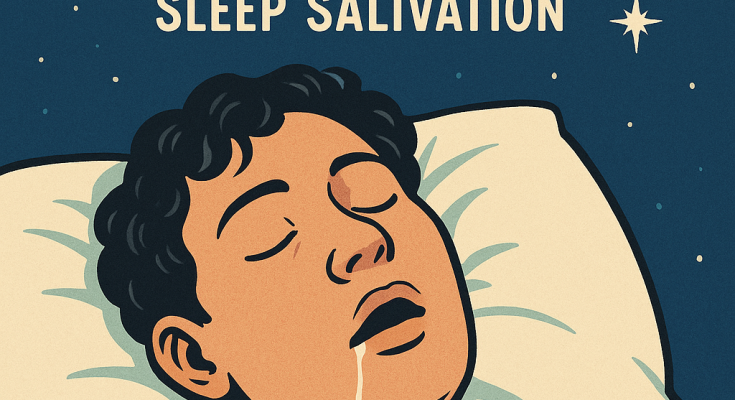Sure! Here’s a draft article titled “Drooling in Dreamland: The Science Behind Sleep Salivation”:
Drooling in Dreamland: The Science Behind Sleep Salivation
Have you ever woken up with a damp pillow and wondered why you were drooling in your sleep? While it might seem embarrassing, drooling during sleep is more common—and more fascinating—than you might think. Let’s dive into the science behind this sleepy phenomenon and uncover what’s really going on when you start salivating in dreamland.
What Is Sleep Drooling?
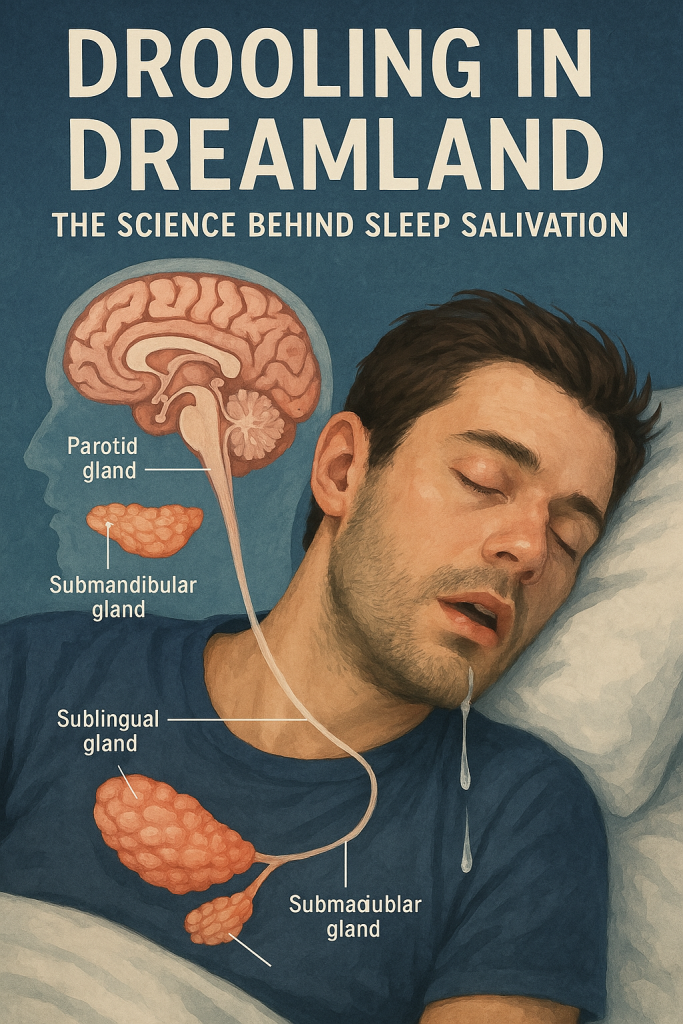
Sleep drooling, medically known as sialorrhea, is the unintentional release of saliva from the mouth during sleep. It’s most noticeable when you wake up with saliva stains on your pillow or around your mouth. Though often harmless, excessive drooling can sometimes indicate underlying health conditions.
Why Do We Drool in Our Sleep?
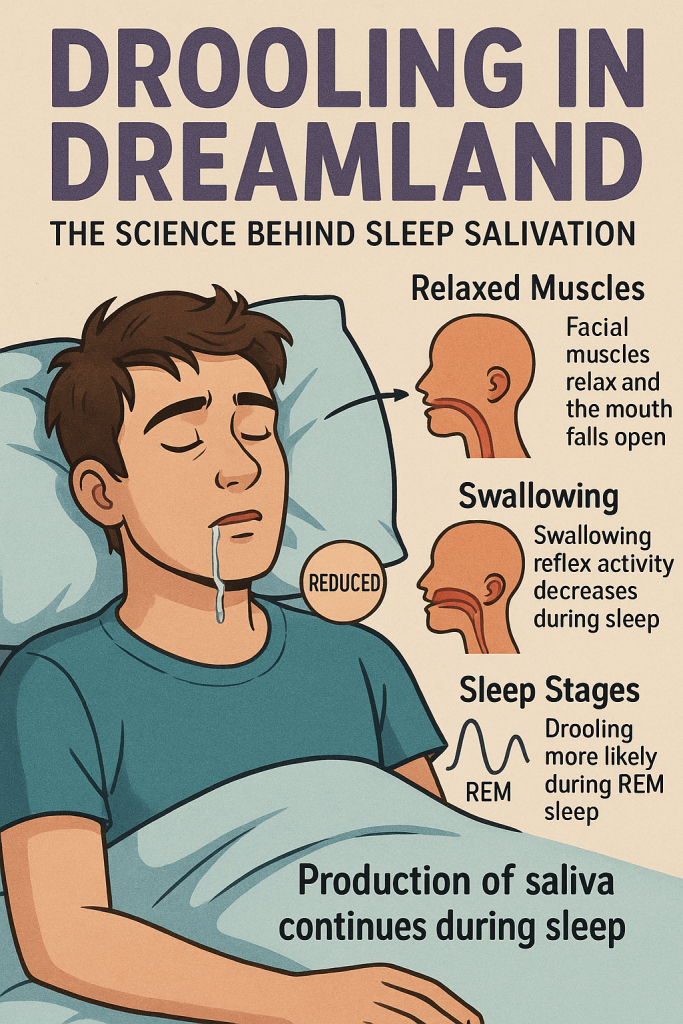
A few key factors contribute to nighttime drooling:
1. Sleeping Position
Gravity plays a major role. When you sleep on your side or stomach, saliva naturally pools in the mouth and can leak out. Back sleepers tend to drool less because the saliva flows down the throat and is swallowed more easily.
2. Muscle Relaxation
During deep sleep—especially in REM (Rapid Eye Movement) sleep—your muscles relax significantly. This includes the muscles that normally keep your mouth closed and your swallowing reflex active. As a result, saliva can accumulate and escape.
3. Mouth Breathing
If you breathe through your mouth at night, whether due to nasal congestion, sleep apnea, or habit, your mouth stays open, making it easier for drool to escape.
4. Saliva Production
Certain medications, neurological conditions, or even gastroesophageal reflux (GERD) can increase saliva production. In some cases, an overactive salivary gland can contribute to more drooling during rest.
Is It Normal to Drool in Sleep?
Absolutely. Occasional drooling is completely normal and usually not a cause for concern. In fact, it may be a sign that you’re entering deep, restorative stages of sleep—when your body is most relaxed. However, excessive drooling could point to issues like:
- Allergies or sinus infections
- Tonsillitis
- Acid reflux
- Neurological disorders (e.g., Parkinson’s disease)
- Medication side effects
If you’re waking up with a soaked pillow regularly or have difficulty swallowing during the day, it may be worth talking to a healthcare provider.
Can You Stop Drooling in Your Sleep?
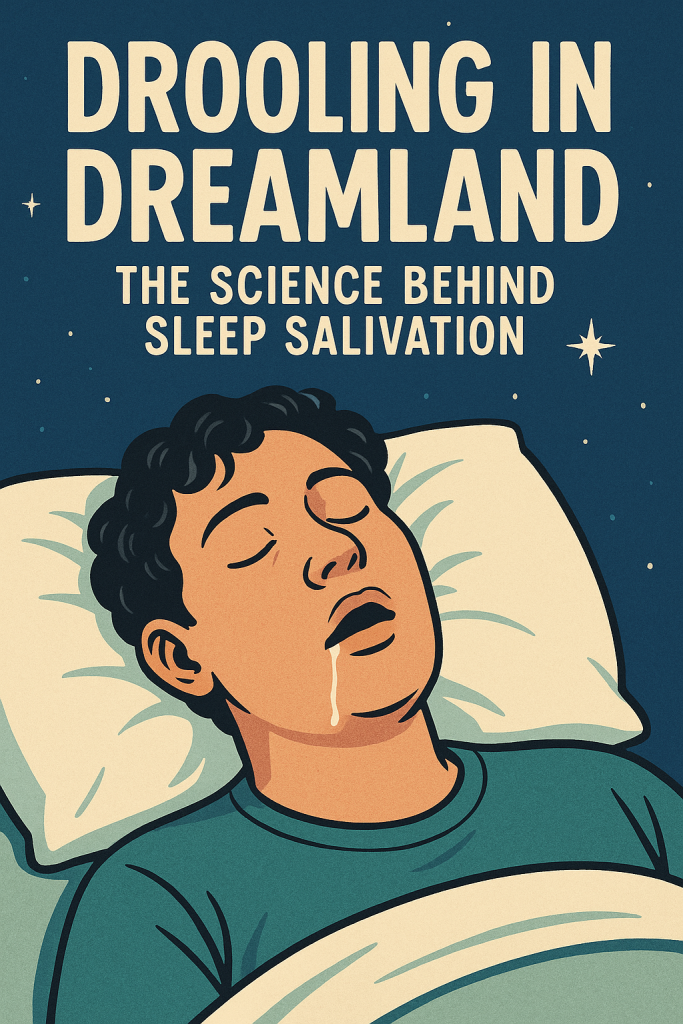
Here are a few tips to reduce nighttime drooling:
- Adjust your sleeping position: Try sleeping on your back to minimize saliva leakage.
- Treat allergies or congestion: Keep your nasal passages clear so you can breathe through your nose.
- Stay hydrated: Surprisingly, dehydration can thicken saliva, making it more noticeable when you drool.
- Consult your doctor: If drooling is persistent or excessive, a medical evaluation can help determine if an underlying issue is at play.
Fun Fact: Even Babies Do It!
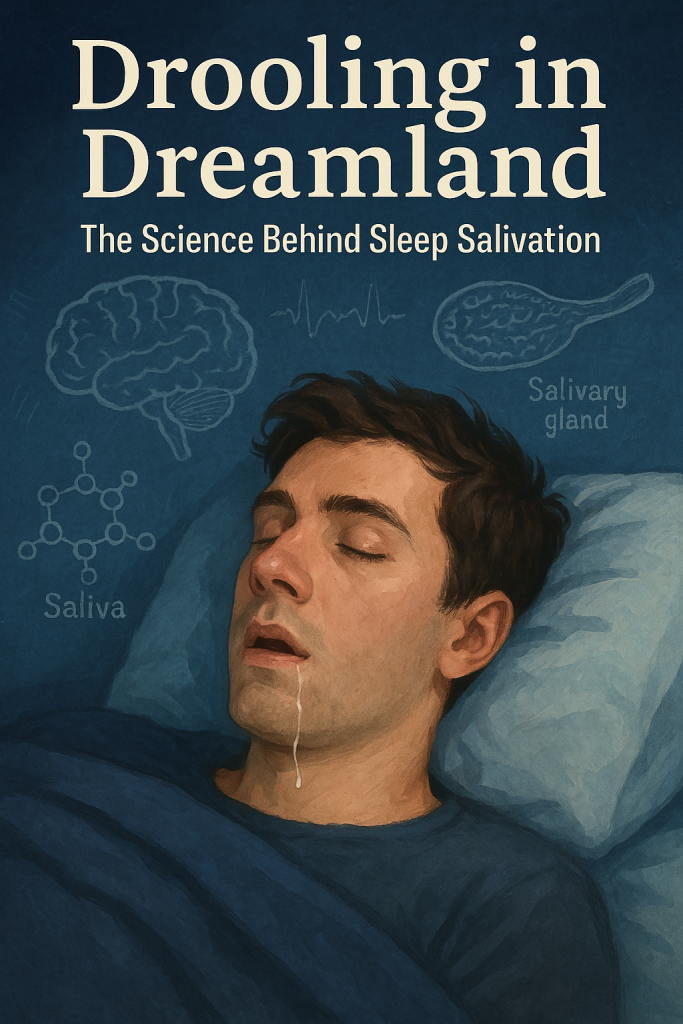
Drooling is a natural part of development for infants and toddlers. It’s a sign that their salivary glands are working and that their nervous systems are still maturing. Adults just tend to be a bit more self-conscious about it!
Conclusion
Drooling in dreamland might not be the most glamorous part of sleep, but it’s certainly one of the most human. Whether it’s caused by a cozy sleeping position, deep relaxation, or a stuffy nose, a little drool on your pillow is nothing to lose sleep over. Sweet dreams—and maybe keep an extra pillowcase nearby, just in case.
